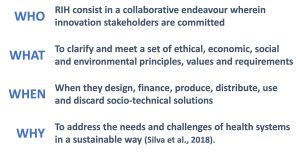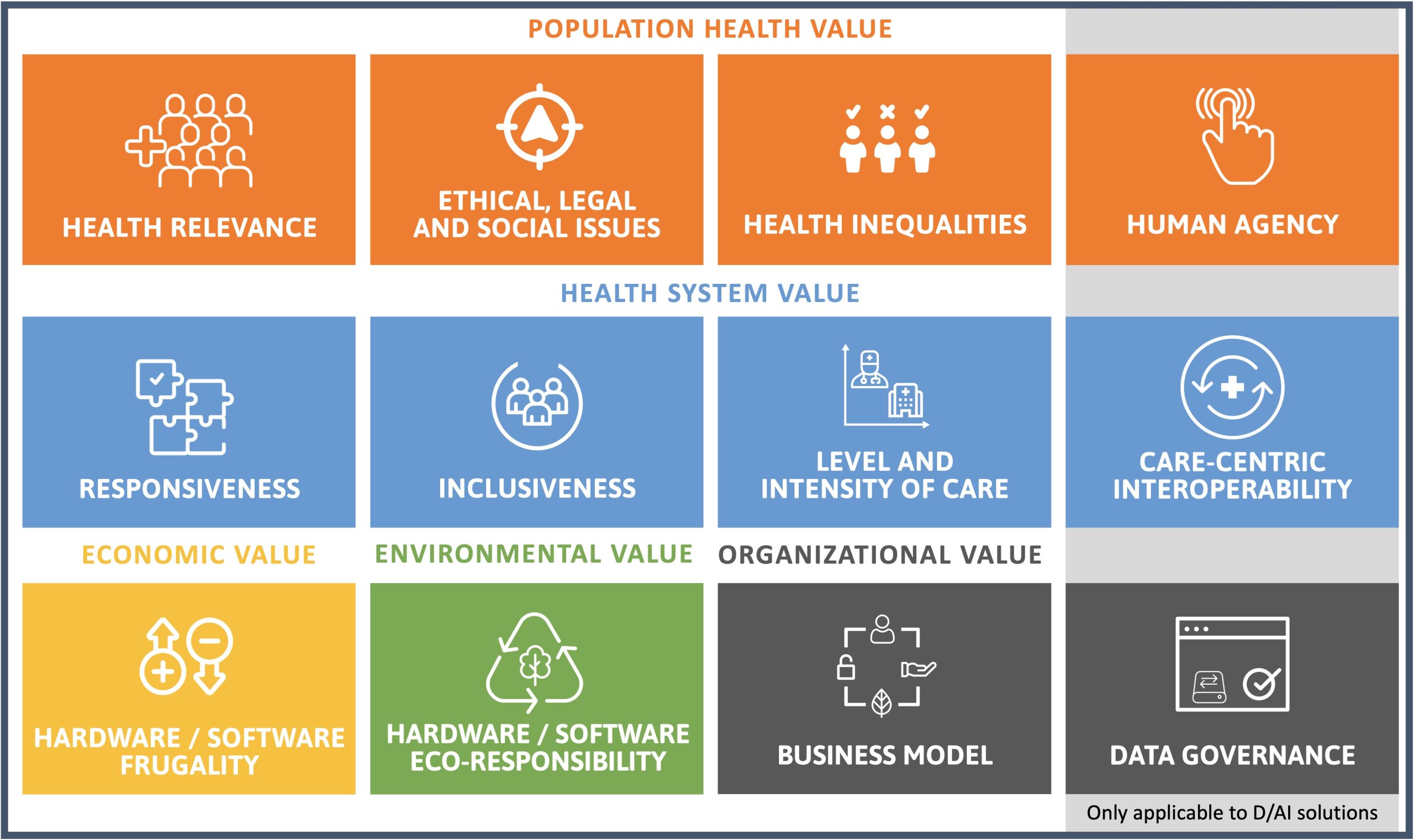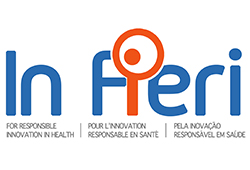 Responsible Innovation in Health (RIH) builds on the field of Responsible Research and Innovation, which promotes the involvement of societal actors in scientific and technological development processes through inclusive participatory approaches. The aim is to develop “ethically acceptable, socially desirable and sustainable” solutions to major societal challenges (von Schomberg, 2013). Innovation stakeholders operate in the private, public or non-governmental sectors and are involved at different stages of innovation: financing, design, production, regulation, diffusion, reimbursement, etc. These stakeholders possess complementary skills and pursue objectives that sometimes conflict with each other. Deliberation is therefore central to RIH.
Responsible Innovation in Health (RIH) builds on the field of Responsible Research and Innovation, which promotes the involvement of societal actors in scientific and technological development processes through inclusive participatory approaches. The aim is to develop “ethically acceptable, socially desirable and sustainable” solutions to major societal challenges (von Schomberg, 2013). Innovation stakeholders operate in the private, public or non-governmental sectors and are involved at different stages of innovation: financing, design, production, regulation, diffusion, reimbursement, etc. These stakeholders possess complementary skills and pursue objectives that sometimes conflict with each other. Deliberation is therefore central to RIH.
The RIH conceptual framework articulates different attributes that should be considered when designing innovations, throughout their lifecycle and in the light of the context where users are located. These attributes highlight the processes by which an innovation is developed, its characteristics as well as the organisation that develops it and makes it available to users (Silva et al. 2018).

The RIH attributes in brief

* Only applicable to digital solutions that operate with or without AI.
What RIH is not
RIH considers responsibility in the processes and decisions of organisations that develop and bring innovations to market, including their suppliers and distributors. These organisations must comply with environmental regulations, adopt proper governance frameworks and respect human and labor rights. Corporate Social Responsibility is necessary for RIH, but it is not sufficient. The RIH attributes rather draw attention to the way health innovations foster equity and sustainability in health systems.
 Responsible Innovation in Health (RIH) builds on the field of Responsible Research and Innovation, which promotes the involvement of societal actors in scientific and technological development processes through inclusive participatory approaches. The aim is to develop “ethically acceptable, socially desirable and sustainable” solutions to major societal challenges (von Schomberg, 2013). Innovation stakeholders operate in the private, public or non-governmental sectors and are involved at different stages of innovation: financing, design, production, regulation, diffusion, reimbursement, etc. These stakeholders possess complementary skills and pursue objectives that sometimes conflict with each other. Deliberation is therefore central to RIH.
Responsible Innovation in Health (RIH) builds on the field of Responsible Research and Innovation, which promotes the involvement of societal actors in scientific and technological development processes through inclusive participatory approaches. The aim is to develop “ethically acceptable, socially desirable and sustainable” solutions to major societal challenges (von Schomberg, 2013). Innovation stakeholders operate in the private, public or non-governmental sectors and are involved at different stages of innovation: financing, design, production, regulation, diffusion, reimbursement, etc. These stakeholders possess complementary skills and pursue objectives that sometimes conflict with each other. Deliberation is therefore central to RIH.

